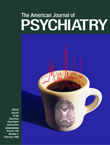The editor describes his goals in the introduction and background sections of this book. In essence, his intention is to offer a concise and comprehensive text on the topic of transcultural psychiatry. As a way of better communicating the content of this book to the readers, he uses case and clinical discussions. He also intends to highlight the relevance of a series of cultural factors in the etiology of pain, suffering, and the healing process in mental illness. Additionally, he plans to illustrate some of the basic principles and practices of transcultural psychiatry and offer health care professionals a basic foundation of the field of transcultural psychiatry. Unfortunately, in his efforts to clarify to the readers the real meaning of “transcultural” psychiatry, Dr. Okpaku causes more confusion than clarification. Actually, throughout the book different authors use different terms to focus on the same issue (e.g., “cultural psychiatry,” “cross-cultural psychiatry,” “transcultural psychiatry,” etc.). Although this type of theoretical analysis of the term “transcultural” might be of interest to culturally oriented psychiatrists who are already well-informed, it has much less relevance for the general psychiatric practitioners.
The book is divided into six sections. The first offers an overview of transcultural psychiatry and comprises three chapters. The first chapter offers a very good historical perspective of the field of cultural psychiatry, with emphasis on its origins and establishment within the field of medicine. The second chapter focuses on an excellent discussion by Alexander H. Leighton, M.D., of the concepts of personality and culture. The clinical emphasis of this chapter makes it very relevant to psychiatric practitioners. The third chapter addresses the impact of migration on mental as well as general physical health. Very appropriate emphasis is given in this chapter to the adaptation processes of refugees.
In section 2, seven chapters attempt to shed light on the field of cultural psychiatry as it relates to mental health services at large. These chapters focus on experiences in different parts of the world. Three of them offer enlightening discussions of value orientation, understanding of traditional healing systems, and the relevance of ethnopsychopharmacology. Section 3 focuses on psychiatric treatment approaches and comprises four chapters offering good perspectives with respect to different but relevant topics in the care of psychiatric patients. The chapter on the role of culture in psychiatric assessments and the chapter on the impact of culture on the therapeutic alliance offer excellent clinical perspectives for general psychiatric practitioners. Section 4 has two chapters addressing key research topics within the field of cultural psychiatry. Issues pertaining to somatization and religion were used as the core themes in these two chapters. Education and training is the focus of discussion in section 5, and the only chapter in this section discusses the need for education regarding the role of culture in medicine in general and psychiatry in particular. Additionally, this chapter depicts the benefits and applications of the cultural formulation of DSM-IV into clinical psychiatric practice and the relevance of cultural psychiatry as well as its influence on curriculum development. Section 6 comprises three chapters, which focus on three special topics in the field of cultural psychiatry—children and families in transition, torture among refugees (particularly women refugees), and issues pertaining to Indian populations, with special attention given to women and children. The strong clinical emphasis of these three chapters make them very relevant to psychiatric practitioners.
In summary, this book is neither comprehensive nor the textbook the editor wanted it to be. However, it is a compendium of excellent chapters authored by highly respected worldwide experts that covers very relevant topics in the field of cultural psychiatry. I strongly recommend this book as a good reference source, particularly for mental health professionals who already have a strong foundation in the field of cultural psychiatry.

